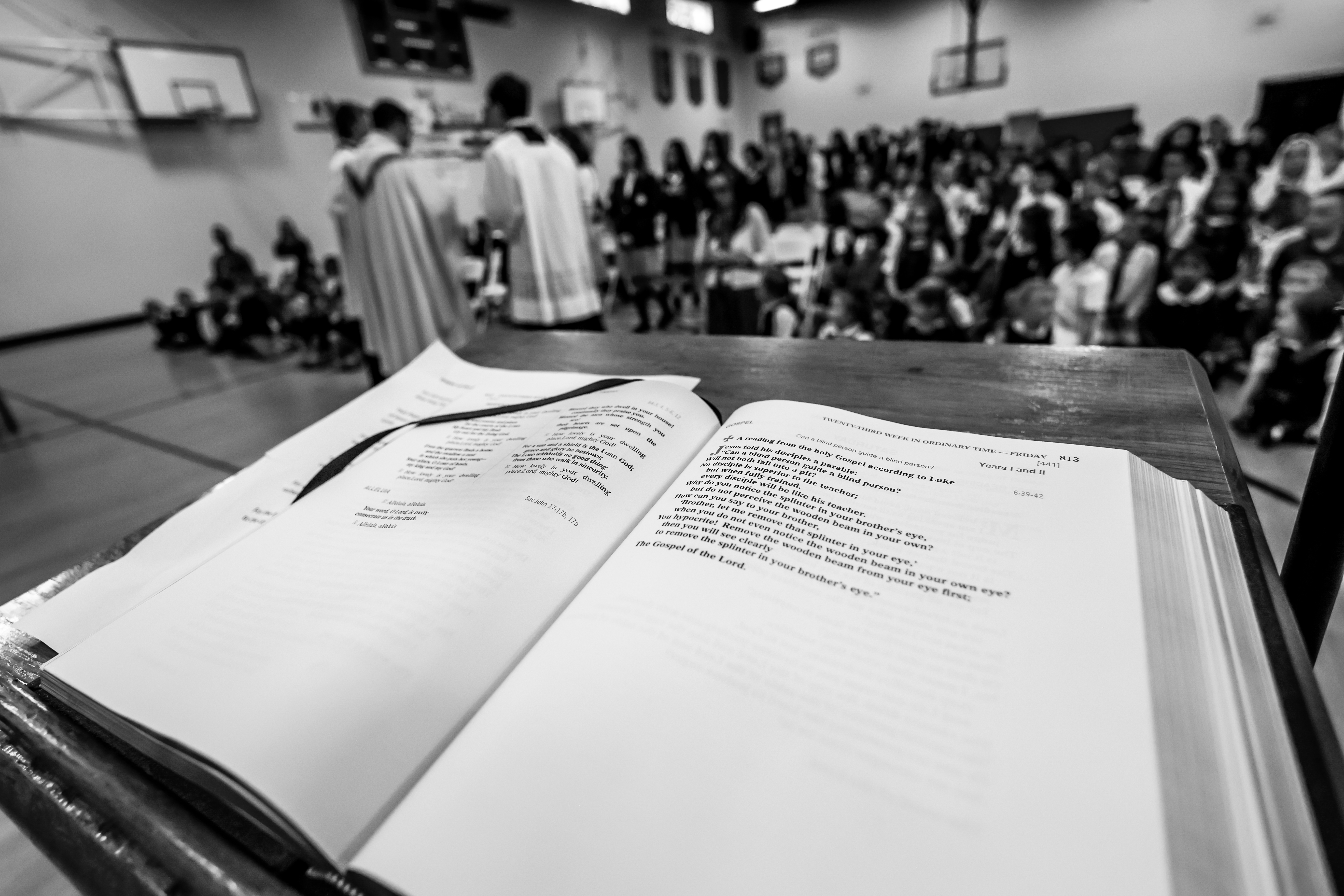
The living, the living, he thanks you,
as I do this day;
the father makes known to the children
your faithfulness. - Isaiah 38:19
Thank you to all of the parents and faculty for participating in our community conversations last week. There were over 50 parents who attended the evening sessions, and nearly all of our faculty discussed the findings of the community survey as well. If you were not able to attend or if you would like to revisit the survey results, we are sharing that slideshow in this week’s newsletter (see below).
It was very formative to hear what others thought about our mission priorities. If I could be candid for a moment, it is also quite daunting to discern how to respond and I am surely still asking for clarity regarding what God wills for our community. The survey did confirm the most unifying elements of our school, and that is the mission, the Catholic culture, and the educational philosophy that results.
I think so much of modern discourse regarding education starts and ends with a simple question: what is the nature of a child?
Parenthood is a front row seat to that question. What does a child need the most? A parent’s love. How has this been confirmed in my own experience? It starts on Saturday mornings with little Joey. Joey usually wakes me up at 5:30am with a series of simple statements: “I go outside with Papa. I go to Papa truck.” Then I am confronted with a decision: How will I address Joey’s most basic need? Presence.
Last Saturday, I went into the garage and changed the oil on one of our vehicles. I descended on the crawler to go under the vehicle, and what did Joey do when I got off the crawler? He tried it himself. He even snuck his little body under the vehicle while I was on the crawler, announcing what he thought he saw (I couldn’t make out what he was saying exactly, but he was trying to help!). Every tool I put down, he picked up and tried to use it on his own. It is again - very intimidating - to ponder how much he imitates what I do, how I behave, and I am sure when he surpasses the age of reason - how I think.
Because the way I think about our world likely won’t do Joey any good to hear right now. His nature is filled with raw and instinctual wonder. He just wants to move and do whatever he can. He is animated by the smells and bells of our sacred liturgy. His newest act is to announce every time he sees a tree out of the window, in the car or in the home. He sees everything as good.
The world Joey wants to know is still the world that we as adults know: we don’t have two different realities and there is one truth that unites us all.
Living the truth in communion is where adults can become weathered and worn by experiences which harden and sour our sense of the truth. How can this be true if it meant all this pain? How can this be true if it includes rejection, failure, mistrust, and wildly oppositional ideas? How can it be true if there are such conflicting priorities or polarizing narratives?
The saints have something to say about this! They are living proof that our natural desire for knowledge is a deeper reflection of our longing for God and subsequent acceptance to live for others, not for self. This means it is less about this world and more about the one to come, the one where all the saints live now!
I will leave you all this excerpts from Pope Benedict XVI’s homily from 2006:
[Saints] are all brought together by the common desire to incarnate the Gospel in their lives under the impulse of the Holy Spirit, the life-giving spirit of the People of God.
But "why should our praise and glorification, or even the celebration of this Solemnity, mean anything to the Saints?". A famous homily of St Bernard for All Saints' Day begins with this question. It could equally well be asked today. And the response the Saint offers us is also timely: "The Saints", he says, "have no need of honour from us; neither does our devotion add the slightest thing to what is theirs.... But I tell you, when I think of them, I feel myself inflamed by a tremendous yearning" (Disc. 2, Opera Omnia Cisterc. 5, 364ff.).
This, then, is the meaning of today's Solemnity: looking at the shining example of the Saints to reawaken within us the great longing to be like them; happy to live near God, in his light, in the great family of God's friends. Being a Saint means living close to God, to live in his family…
But how can we become holy, friends of God? We can first give a negative answer to this question: to be a Saint requires neither extraordinary actions or works nor the possession of exceptional charisms. Then comes the positive reply: it is necessary first of all to listen to Jesus and then to follow him without losing heart when faced by difficulties…
Like the grain of wheat buried in the earth, those who trust him and love him sincerely accept dying to themselves. Indeed, he knows that whoever seeks to keep his life for himself loses it, and whoever gives himself, loses himself, and in this very way finds life (cf. Jn 12: 24-25).

